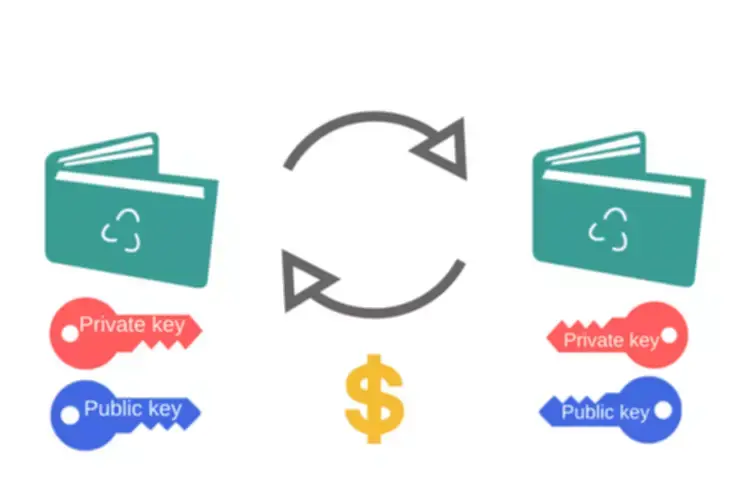Where is cryptocurrency stored? If you are a trader, then it is likely that you have never worried about this question. However, to become a better investor, you simply must know everything about it so that you could get the most of your funds.
What is a crypto wallet?
The definition of a cryptocurrency wallet can be explained in several ways. Generally, it is a program that is installed on a device or a device itself that is used to “store” the coins.
Their usage lets the owner send or receive the digital currency and monitor its balance. This is related to Bitcoin, Ethereum, Ripple, and any other altcoin.


Turnkey Brokerage Solution For Your Business
Get the most profitable fully licensed fx/crypto brokerage software or ready-to-operate business in 48 hours. Best-in-class web & mobile trading platforms, sales-driven CRM, full integration with MT4/5, and 150+ payment providers.
How does a crypto wallet work?
There is a common misunderstanding that cryptocurrencies are all kept in a wallet that is either a software program or a hardware device. Yes, this might sound strange, but this works a bit differently from a regular e-wallet.
Basically, all the wallets do is store private and public keys, and interact with different blockchains to conduct transactions or monitor balances. This might sound a bit complicated, so let’s try to explain it with an example.
Suppose someone has 1 Bitcoin and he wants to send it to you.
First, you send him the public address of your wallet. This one is used to receive funds.
Second, he conducts a transaction where the private key of his wallet is used to confirm that these really are his funds. If the private and public keys match, the balance of your account will increase by 1 BTC. There is no coin exchange, this is merely a change in ownership.
So, what do we get:
- A private key is assigned to every wallet. This one must not be shared with anyone. It is used for transaction confirmation and to prove that you own a related public key.
- Each wallet also has a public key. It is an identifier for your account on the Internet and is used to receive funds.
- When these two keys match, it is possible to transfer the funds.
- Whenever you perform a transaction, the money is not transferred between wallets. Your coins remain within the blockchain. All that changes is the fact of who owns the currency now.
Types of crypto wallets
Different types of wallets exist. Each option has its own advantages, disadvantages, features, and accessibility.
Basically, we can say that there are three main types:
- Software.
- Hardware.
- Paper.
However, these categories can be divided into even smaller groups that consist of 5 types. They will be explained below.
Desktop
Whenever you download a wallet on your PC or laptop, you can call it a “desktop wallet”. It can only be used on the computer where it is installed. This option is considered to be quite secure, but if you are unlucky enough to catch a virus, there is a high chance that all your funds will be gone.
Online
If you cannot afford to keep your coins on a computer, it is possible to store them in an online wallet. It can be accessed from any device and from any place as long as you remember the passwords, codes, and other security-related stuff.
Although this type is easier to use in comparison with the previous one, it loses its safety because of being controlled by a third-party vendor. Such services are usually more likely to be hacked. It is easier to target a huge company than one individual.
Mobile
One of the most convenient options is secure enough. It is a mobile version of the desktop wallet. While you can still use it as a regular crypto wallet, it is even cooler because you can pay in cafes and retail stores that accept this kind of payment.
Hardware
The three types above are all categorized in the “software” group. “Hardware” is both a type and a group at the same time.
In this case, a hardware device is used as a wallet. It can be a disk, a USB flash drive, or anything else. All the coins are stored offline, but the transactions are still performed online. So, what’s the point of using hardware wallets?
- It is easy to perform transactions. Just plug in the device, enter the password, send the currency, and confirm the payment.
- It is secure. Using a hardware device is safer than working with the software. There is no risk of being hacked and the money is only used when the device is plugged in.
Therefore, if you want to keep your coins safe and use them from time to time, this is your choice.
Paper
The last option is using a paper wallet. As long as nobody else has access to it, this is the safest option out of all.
Basically, a paper wallet is simply a printed version of a public and a private key. The public version can be shown to everyone to receive funds, while the private one is used to spend the money.
Your main concern will be the way you create such a wallet. Usually, people use online-generators because it is the fastest way to do it. If you trust these services, then you do not have to worry at all.
Some of the most popular generators are:
- Bitaddress
- Walletgenerator
- BitcoinPaperWallet and others.
Below we will also cover some frequent questions that are related to the cryptocurrency wallets.

Are crypto wallets anonymous?
“Well yes, but actually no” sounds like the best answer in this case.
While your real identity is not tied with the wallets you use, all the information remains within the blockchain permanently. This means that any transaction can be traced right to your wallet address. From here, it is possible to trace your identity in several different ways, but it is not very easy.
Although there are many attempts to make cryptocurrencies completely anonymous, they should also remain transparent in order to show users that they can be trusted. Full anonymity has a lot of drawbacks and it will definitely attract frauds to the system. That’s something we do not want to see, right?
How to make sure your wallet is safe?
The first rule of any investment is “do not keep all eggs in one nest”. Never store all your funds in one place. Diversify your storage by using several devices, various software, papers, etc.
Second, if you use a software wallet, make sure you do not download any files from unknown sources. The risk of catching a virus is ridiculously low, but do not let your guard down. Even the most trusted resources could have a surprise for you. That is why it is recommended to use an antivirus at all times.
Finally, keep your software up-to-date. The newer the version, the better security measures are used within it. Breaking into older versions is much easier, so do not neglect this option.
These are not all the tips that can be mentioned. However, following these rules, you will get the basic security that is needed to protect your funds in any kind of cryptocurrency wallet.






